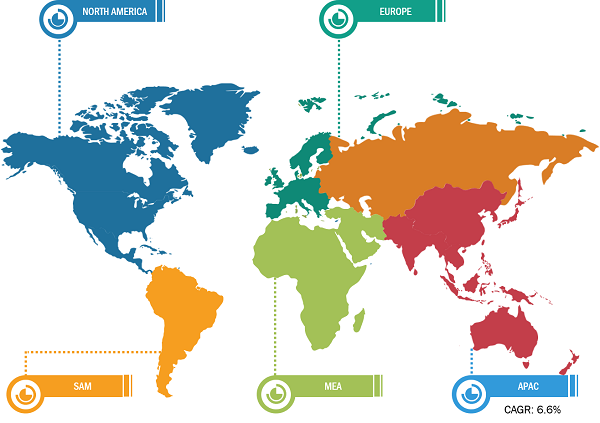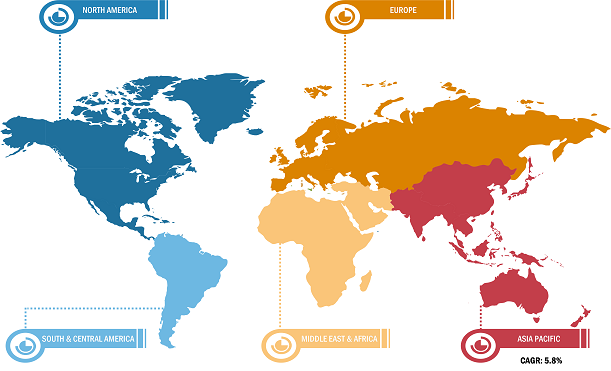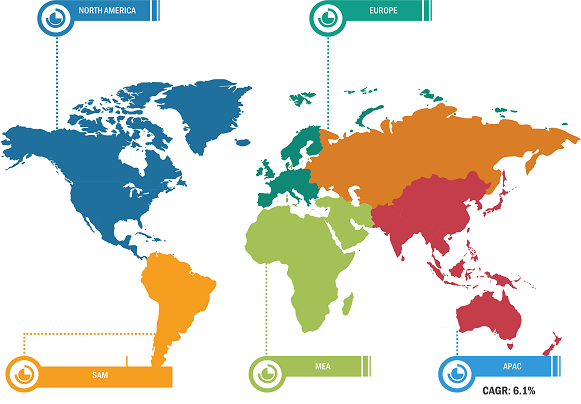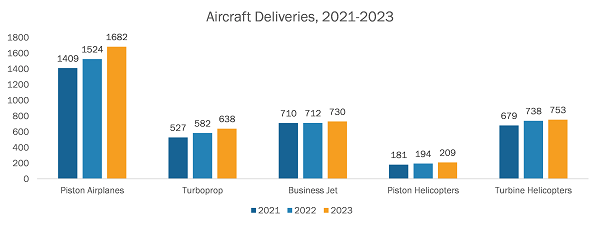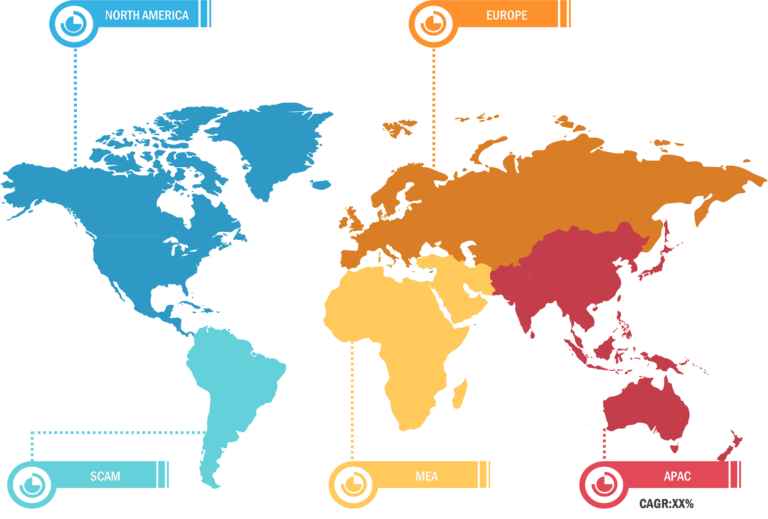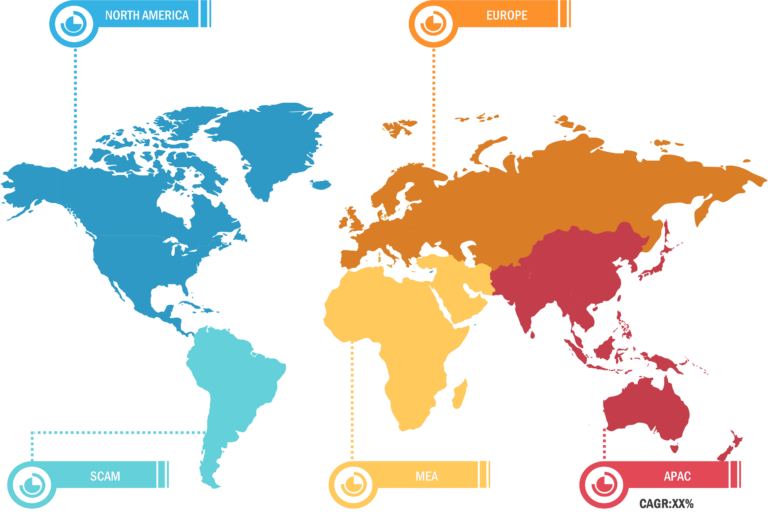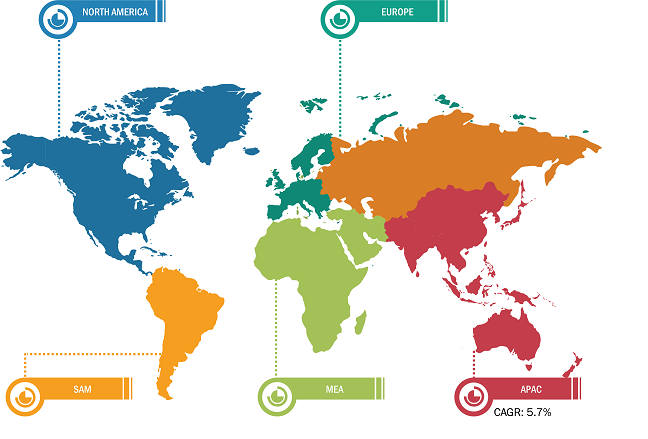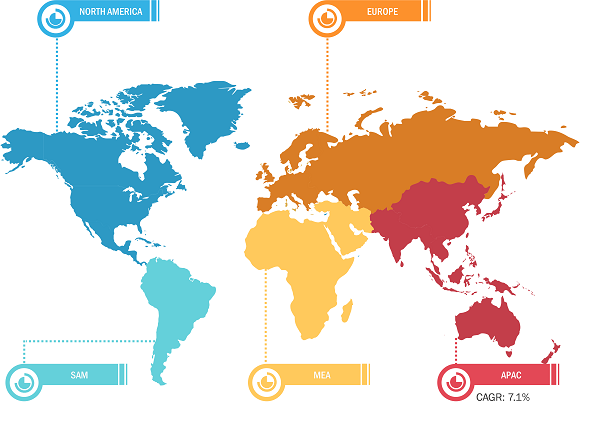
Sophorolipid and Rhamnolipid Market
In 2022, Europe held the largest global sophorolipid and rhamnolipid market share. The Europe sophorolipid and rhamnolipid market is segmented into Germany, France, Italy, the UK, Russia, and the Rest of Europe. In Europe, the increasing use of sophorolipid and rhamnolipid in detergents, cleaning products, personal care and cosmetic products, food processing, pharmaceuticals, and many other applications is driving market growth. The rising awareness among consumers regarding the use of natural ingredients in their day-to-day products is also boosting the demand for biosurfactant-based cleaners and detergents in Europe. The demand for sophorolipids is increasing in the food industry. The emulsifying properties of sophorolipids can be used to improve the physical properties of food products.
In Europe, consumer demand for natural ingredients and compounds in cosmetics is growing. This offers opportunities for new companies seeking to enter the market and for new and innovative natural ingredients and compounds. Also, many cosmetic manufacturers in the region use a diverse range of natural compounds to manufacture their products.

Strong Growth of Personal Care & Cosmetics Industry Drives Sophorolipid and Rhamnolipid Market Growth
The personal care & cosmetics industry is growing significantly as people increasingly buy personal care and beauty products. In recent years, there has been a growth in the use of different cosmetic products among both male and female consumers in their daily routines. The personal care and cosmetic product manufacturers focus on product branding, advertising, and new product launch strategies to increase product sales. The e-commerce industry in many countries has been witnessing a rising growth curve, further boosting the sales of personal care and cosmetic products across the globe. Further, rising awareness regarding the adverse effects of using chemical-based ingredients in personal care and cosmetics drives the demand for biosurfactants. Biosurfactants such as sophorolipids and rhamnolipids are gaining more attention as they are environmentally friendly, biodegradable, non-toxic, and have fewer side effects. Sophorolipids and rhamnolipids are used in personal care and cosmetics products such as shampoos, conditioners, shower gels, face washes, creams, body wash, facial cleansers, and lotions.
Sophorolipid and Rhamnolipid Market: Segmental Overview
Based on type, the sophorolipid and rhamnolipid market is segmented into sophorolipid and rhamnolipid. The sophorolipid segment held a larger share of the market in 2022. Sophorolipids can stabilize formulations while being gentle on the skin, which aligns with the increasing consumer preference for eco-friendly and skin-friendly products. Also, they are highly used in detergents, food processing, and pharmaceuticals.
Based on application, the sophorolipid and rhamnolipid market is segmented into household detergents, personal care, industrial & institutional cleaners, food processing, oilfield chemicals, leather processing, agriculture, pharmaceuticals, and others. The household detergents segment held the largest share of the sophorolipid and rhamnolipid market in 2022. Sophorolipids and rhamnolipids have shown effective results in hard surface cleaning and automated dishwashing aid formulations. This is partially due to their low foaming profile and surface activity properties, which are potentially interesting in additional applications.
Impact of COVID-19 Pandemic on Sophorolipid and Rhamnolipid Market
Before the COVID-19 pandemic, the sophorolipid and rhamnolipid market was mainly driven by their increasing use in food processing, detergents, and other applications. However, due to the pandemic, governments of various countries across the globe imposed country-wide lockdowns that directly impacted the growth of the industrial sector. The shutdown of production facilities negatively impacted the sophorolipid and rhamnolipid market growth in 2020. The negative impact of the pandemic on food, personal care, and many other industries reduced the demand for sophorolipids and rhamnolipids.
Various industries regained momentum with the ease of lockdown measures, which increased the demand for sophorolipid and rhamnolipid. Further, various economies began reviving with the resumption of operations in different sectors in 2021. The sophorolipid and rhamnolipid market is growing with increasing demand from various sectors.
Sophorolipid and Rhamnolipid Market: Competitive Landscape and Key Developments
Dow Inc., Allied Carbon Solutions Co. Ltd., Saraya Co. Ltd., Evonik Industries AG, Givaudan SA, Godrej Industries Ltd., Holiferm Ltd, Stepan Co., Deguan Biosurfactant Supplier, and Jeneil Bioproducts GmbH are a few players operating in the global sophorolipid and rhamnolipid market. Key players operating in the global sophorolipid and rhamnolipid market focus on providing high-quality products to fulfill customer demand. Also, they focus on adopting various strategies such as new product launches, capacity expansion, partnerships, and collaborations to stay competitive in the market.
Key Developments
- In 2023, Holiferm Ltd and Sasol Chemicals, a business unit of Sasol Ltd., announced a collaboration to produce and market rhamnolipids and mannosyl erythritol lipids (MELs). This collaboration expands the partnership announced in March 2022 between the two companies to develop and commercialize another biosurfactant product, sophorolipids.
- In 2022, Evonik announced an investment to build a new plant for the production of bio-based and fully biodegradable rhamnolipids. This new investment at the Slovenská Ľupča site in Slovakia is expected to strengthens the company’s partnership with the consumer goods group Unilever, which began in 2019.
- In 2020, Stepan Co acquired Logos Technologies LLC’s NatSurFact business, a rhamnolipid-based line of biosurfactants derived from renewable sources.

